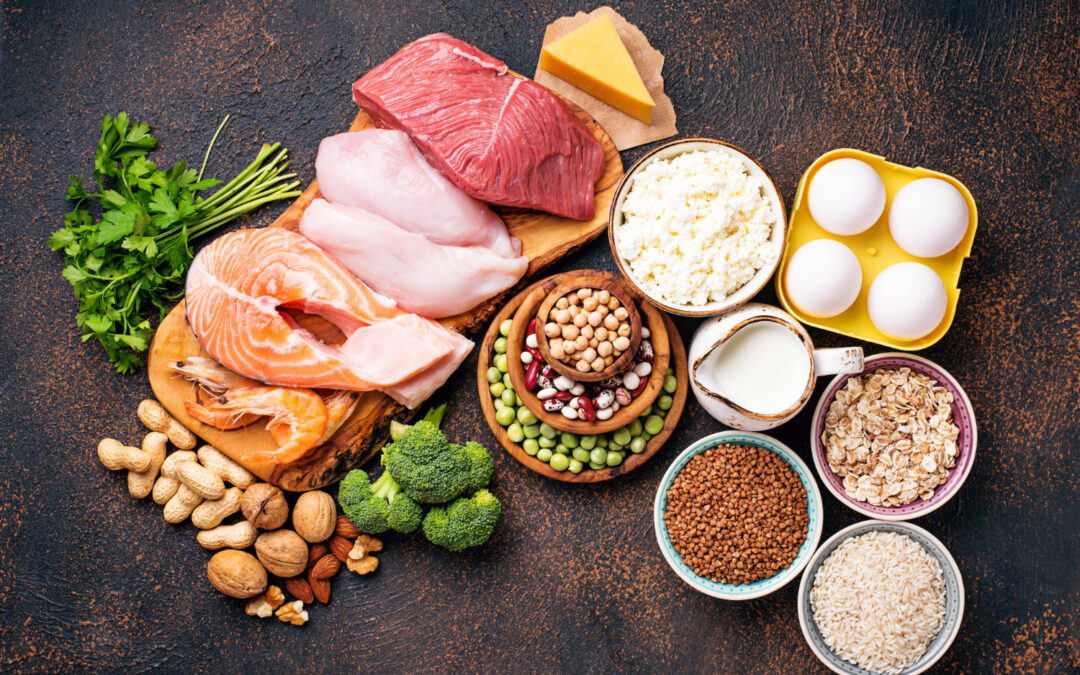If there’s one nutrient that deserves your full attention on your fitness journey, it’s protein. At 10X Fitness, we talk a lot about training smart and recovering right—and protein plays a starring role in both. Whether your goal is to build muscle, lose fat, or improve recovery, protein is essential.
Here’s why:
What Is Protein and Why Does It Matter?
Protein is one of the three macronutrients your body needs to function, along with carbohydrates and fats. But unlike the others, protein is the building block of your muscles, organs, skin, and even your immune system.
When you train—especially through resistance and high-intensity workouts like ours—you create tiny tears in your muscle fibres. Protein is what helps rebuild them stronger than before. No protein, no progress.
The Role of Protein in Training and Recovery
Every time you train at 10X, you’re triggering muscle breakdown (in a good way). But the real gains happen after your session—when your body begins repairing and rebuilding. That’s where protein comes in.
Here’s how it supports your results:
- Muscle growth and repair: Protein supplies amino acids that rebuild torn muscle tissue after training.
- Recovery support: It reduces post-workout soreness and speeds up recovery time.
- Fat loss support: Protein boosts metabolism and helps preserve lean muscle while dieting.
- Hormone regulation: It supports hormone production, including growth hormone and insulin, which are vital for performance and repair.
How Much Protein Do You Really Need?
The standard government guidelines are typically too low for active individuals. At 10X, we recommend aiming for 1.6–2.2g of protein per kg of body weight per day, depending on your goals.
For example, if you weigh 70kg, that’s around 112–154g of protein per day.
If your goal is to build lean muscle or improve recovery, consistency is key—spread your protein intake across the day in regular meals or snacks.
Best Sources of High-Quality Protein
Not all protein is created equal. For the best results, focus on complete proteins—these contain all the essential amino acids your body needs but can’t produce on its own.
Here are some top choices:
- Animal-based sources: chicken breast, turkey, lean beef, fish, eggs, and dairy (like Greek yoghurt and cottage cheese)
- Plant-based options: tofu, tempeh, legumes, quinoa, lentils, and high-quality vegan protein powders
Supplements like whey protein shakes can also help you hit your daily intake—especially after training or when you’re short on time.
Common Myths About Protein
Let’s bust a few myths we hear often:
“Protein makes you bulky.”
False. Muscle gain takes consistent training, progressive overload, and calorie surplus. Protein supports lean muscle—it doesn’t magically add mass.
“You only need protein if you want to bodybuild.”
Wrong again. Protein is essential for everyone, from those just starting their fitness journey to seasoned athletes. It fuels performance, helps control hunger, and improves body composition.
“You can only absorb a small amount at once.”
Not quite. While muscle protein synthesis may max out per meal, your body still digests and uses larger amounts of protein effectively throughout the day.
When Should You Eat Protein?
Post-workout protein intake is especially important. After a session, your muscles are primed to absorb nutrients—this is often called the “anabolic window.” Aim to get 20–40g of protein within 1–2 hours of finishing your session.
But it’s not just about post-workout—protein intake should be consistent across the day, ideally every 3–4 hours.
Final Thoughts: Make Protein a Priority
If you want to build strength, recover faster, and feel more energised—protein should be a non-negotiable in your daily routine. At 10X Fitness, we train with purpose, fuel with intention, and recover like professionals.
So, next time you plan your meals, ask yourself: Where’s my protein?
Your body—and your results—will thank you.

